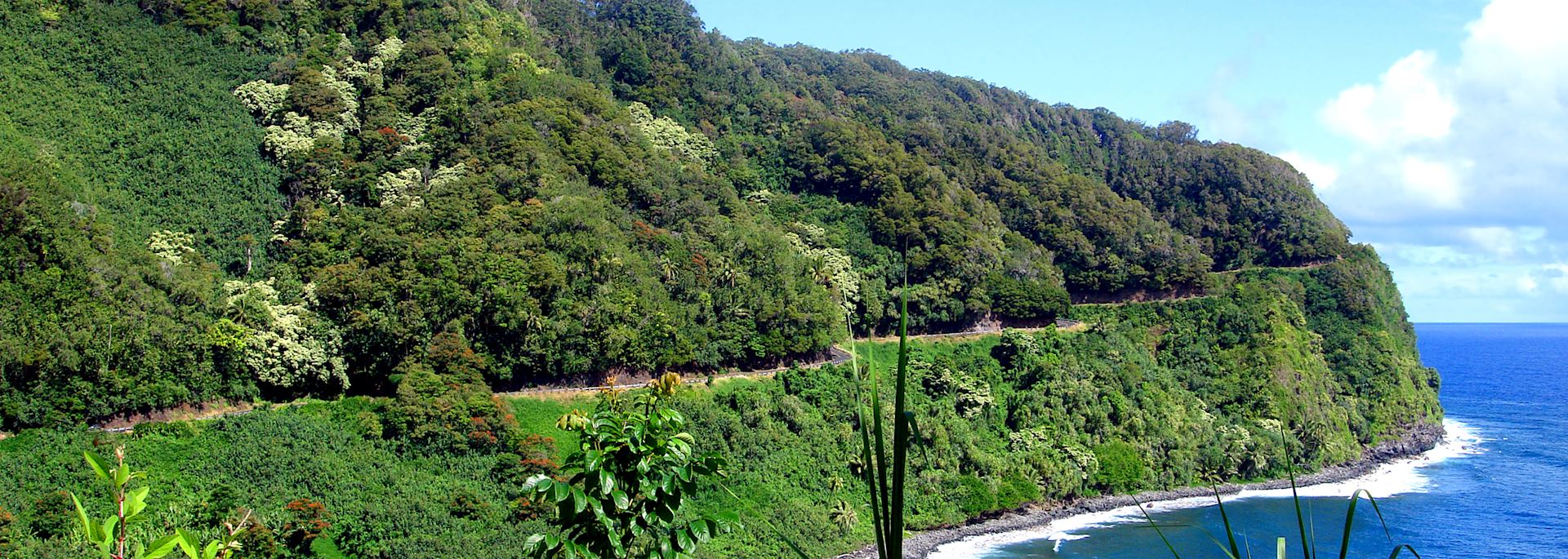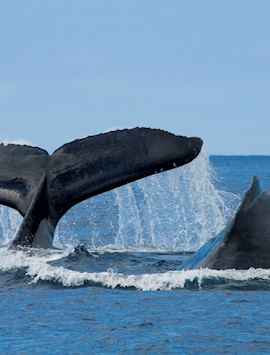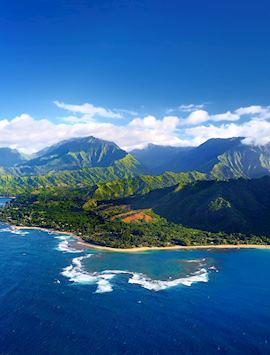By USA specialist Tim
Each of the islands in the Hawaii archipelago has a different character, and if you’d like to explore more than just the beaches, getting behind the wheel presents the opportunity to visit active volcanic landscapes and the poignant war memorial of Pearl Harbor, as well as experience traditional Polynesian culture. There is very little public transport on the islands, so a car gives you the freedom to explore your surroundings at your own pace.
Hiring a car also allows you to travel a little further off the beaten track, where smaller, intimate boutique places sit secluded in the rainforest, just five or ten minutes from the hustle and bustle of the main resorts.
Self-drive tours of Maui
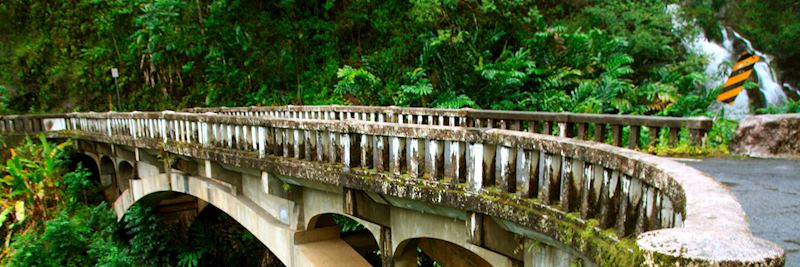
A lush, verdant interior sliced by emerald streams and ringed by white sandy beaches, Maui is one of Hawaii’s most popular islands. And while time spent enjoying the azure waters is likely to be a major draw for many visitors, a hire car allows you the opportunity to explore lesser-visited corners, where Polynesian culture is still prevalent and a traditional way of life remains.
The Road to Hāna is one such way to experience this traditional culture. This drive runs all along the coast past hidden waterfalls, at times ascending to positions which afford spectacular views over the rugged Pacific. A tranquil journey that feels so far removed from modern life, the only things you'll spot along the Hāna Highway are local people cruising along and the occasional shack selling coconuts and pineapples.
The route concludes at the small town of Hāna, one of the oldest settlements in Hawaii and a fantastic place to experience traditional Polynesian culture. Set amid rainforest, the town retains a compact and sleepy feel, having escaped the major development seen on the west coast. There’s plenty to see and do here, from visiting Hale Piilani, the state’s largest heiau (Hawaiian temple) in Kahanu Garden, to shopping for Hāna's notable Gourmet Blend Chili Pepper Sauce at Hasegawa General Store.
Aside from driving the Road to Hāna, Maui is a good place for boat trips. Head out to Molokini, a crescent shaped, partially submerged volcano that’s home to a plethora of marine life. Here you can snorkel among manta rays, turtles, octopus and reef sharks. Alternatively, scale the dormant volcano that dominates Haleakalā National Park on the west coast, for uninterrupted views of the neighbouring islands.
Self-drive tours on the island of Hawaiʻi
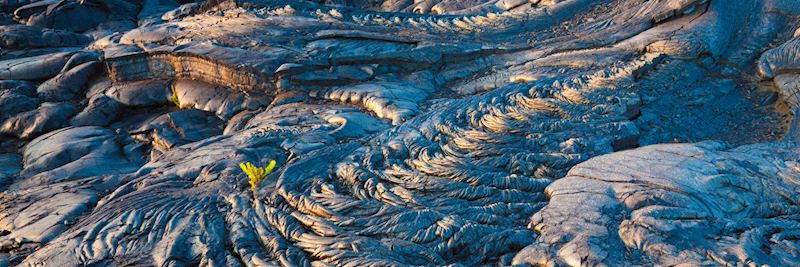
Of the three main islands, the island of Hawaiʻi is my personal favourite. Home of the Hawaiʻi Volcanoes National Park, it's one of the very few places in the world where you’re able to watch glowing molten lava flowing freely into the ocean. Here you can walk on solidified lava beds or watch the smoke rise from the US’s only continuously active volcano, Kīlauea.
The youngest but largest of the Hawaiian islands, the island of Hawaiʻi lays claim to the world’s tallest mountain, Mauna Kea. Most of the mountain itself is submerged beneath the Pacific Ocean, rising almost 10,000 metres in total — higher than Mount Everest.
Most hotels on the island of Hawaiʻi are on the west coast. I’d recommend spending a few days on the beaches here and enjoying a number of activities including a night snorkel with manta rays and a visit to the summit of Mauna Kea and its observatory.

My journey to the summit of Mauna Kea was a pleasant two and a half hour drive from my west coast hotel, with a stop midway for a late lunch and to acclimatise. It’s the end reward, however, that is most significant.
After watching uninterrupted views of the sunset from the summit, our small group descended to the visitor centre at around 2,700 metres to stargaze through a very advanced telescope. With minimal air moisture and light pollution, this is a brilliant spot for stargazing, and we spied various galaxies, constellations and Mars. We concluded by zooming in on the moon, and the clarity and detail of each individual crater was incredible.
After a few days on the west coast, take your time to explore the many points of interest along the route to the east coast, including huge canyons, traditional temples and Kealakekua Bay, a historical park and the memorial site of British naval officer Captain Cook.
While east coast hotels are a little more basic, they’re the gateway to the lava fields and well worth a night or two’s stay in this area. From here you can explore the steaming craters, lava tubes and cinder cones of Kīlauea. If you’re lucky you might even witness bright red molten lava spewing from its caldera. There are also places here where the landscape is jet black. Lava flows, which once spilled over roads, have cooled and hardened, leaving little but solitary ‘Road Closed’ signs jutting out.
Self-driving on Kauaʻi

Gazing down over the lush, green jagged peaks of the Nā Pali Coast from the air evokes a sense of a land that has stood still in time. It’s no wonder then, that Kauaʻi’s timeless landscape was used as the location for Jurassic Park.
The island is small enough to drive around in less than a day, but it’s worth taking a few days to explore. The Waimea Canyon, a huge sweeping valley covered in rainforest, is known as the Grand Canyon of the Pacific and there’s no other way to access its many viewpoints than to drive. It’s also possible to drive up and ride down on a mountain bike.
Both Waimea and Nā Pali are on the west coast of the island. One of the most rewarding ways to explore Nā Pali is to drive to the start of a walking trail and continue into the craggy outcrops on foot. The cliffs are some of the highest in the world and seeing them from land offers you a slightly acute view, so take a boat trip or helicopter flight as well to appreciate their true scale.
The south shore is home to Poʻipū, where most of the island’s accommodation is located. Without a car on Kauaʻi you’ll be stuck at one of the beach resorts, and while there are a number of pretty beaches, they can be quite windy due to Kauaʻi’s unprotected location further out into the Pacific than its neighbours.
On the north shore is the small Polynesian town of Hanalei, made famous for its mention in the Puff the Magic Dragon song (“Puff the magic dragon, lived by the sea, and frolicked in the autumn mist in a land called Hannaley [Hanalei]”).
Hawaii used to have a law that no building should be higher than a palm tree, and while this rule no longer applies (as evident in some of the larger cities) Hanalei, with its coconut shacks and rustic buildings, retains a traditional air.
Kauaʻi’s airport is located at Lihue on the east coast, also known as the Coconut Coast for the abundance of coconut trees that grow here. The east coast is also home to Hawaii’s biggest river, Wailua. Head out onto the water by taking a bamboo raft or kayak to Fern Grotto, a fern covered, lava rock cavern.
Practicalities of self-driving in Hawaii
- Each of Hawaii’s islands has something different to offer and I’d recommend visiting at least two during your trip. If you have between two and three weeks’ travel time, it’s possible to include all four of the larger islands in one trip.
- For me, the volcanic activity on the island of Hawaiʻi is a must, and most visitors will want to visit Pearl Harbor on O‘ahu for its historical significance. Honolulu Airport is also located on O‘ahu and is the gateway to Hawaii for most international visitors, so I’d recommend spending a night or two here after you arrive to take in the main sites before moving on.
- Although car hire is available on all of the islands, you have to take internal flights to travel between islands. The ocean that surrounds Hawaii is particularly choppy, meaning sailing conditions aren’t ideal. It takes approximately 45 minutes to fly between each island.
- Whichever islands you choose, you’ll always be within easy reach of a beach.
- While the cost of hiring a car can seem quite high initially, paying for organised tours can add to the cost of your trip significantly and can prove restrictive because you’re tied to set itineraries.
Start planning your trip to Hawaii
Start thinking about your experience. These itineraries are simply suggestions for how you could enjoy some of the same experiences as our specialists. They're just for inspiration, because your trip will be created around your particular tastes.
View All Tours in HawaiiFurther reading
- Self-drive holidays in the United States
- Route 66 holidays
- Self-drive holidays
- Self-driving the Blue Ridge Parkway
- Self-driving through Arizona & Utah in America’s Southwest
- Self-drive holidays in Florida
- What to do in Hawaii: our highlights guide
- Self-drive holidays in California
- Self-drive holidays in Canada
